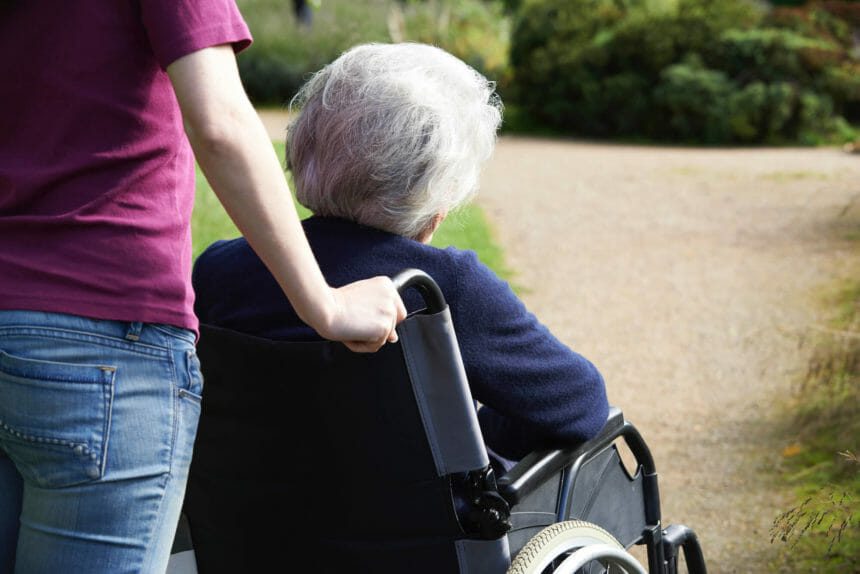
As states continue rolling out reopening plans amid the COVID-19 pandemic, 10 states or jurisdictions have issued guidance to long-term care facilities that specifically mentions assisted living, according to a LeadingAge analysis.
Those places include Indiana, Maine, Minnesota, Missouri, Nebraska, New Hampshire, North Dakota, Ohio, Tennessee and Washington, DC.
“The novel coronavirus pandemic is an ever-evolving and challenging threat to all our member communities, and the care and safety of residents and the people we serve must come first,” LeadingAge wrote.
Regarding reopening to visitors, the recommendations fall under the categories of outdoor visits only, no COVID-19 cases, and visitor, resident and facility requirements.
The visitor and resident requirements include screenings, use of masks or personal protective equipment, and limits on numbers of individuals. Facility requirements include scheduling visitation, training staff, and implementing infection control and prevention.
Some notable exceptions exist among states. Maine’s guidance, for example, permits gifts from visitors and suggests post-visit monitoring, something New Hampshire also mentions in its guidance. Indiana’s visitation guidance limits visitors to “essential family caregivers” only.
Three states or jurisdictions — Nebraska, North Dakota and Washington, DC — include guidance on communal dining and group activities.
The nation’s capital created its own two-phased approach that covers a variety of care service areas in assisted living and nursing homes that are permitted under Phase Two. These include communal dining and group activities, nonmedical personal caregivers, field trips, screenings and testing, data reporting, new admissions and the provision of PPE.
Nebraska and North Dakota have aligned their reopening plans with the Centers for Disease Control and Prevention guidelines for assisted living and Centers for Medicare & Medicaid Services guidance for visitation.
LeadingAge said it will update its post as new information becomes available or best practices change.
In other coronavirus-related news:
- LeadingAge Florida has joined with the national organization in launching an “Act for Older Adults” campaign to demand that the next relief package includes comprehensive measures to safeguard older adults and care workers. In support of the campaign, LeadingAgeFlorida members will take part in virtual meetings with Florida’s congressional delegation, making phone calls and sending emails to urge Congress to include robust support for older adults and the providers who care for them.
- Long-term care industry leaders and state legislators were surprised by Virginia Gov. Ralph Northam’s last-minute “about-face” on releasing the names of assisted living communities and nursing homes with COVID-19 outbreaks. The decision came with the state announcement that assisted living communities would be receiving $20 million to support their COVID-19 responses.
- The U.S. Senate Committee on Health, Education, Labor & Pensions held a hearing entitled “COVID-19: Lessons Learned to Prepare for the Next Pandemic” to discuss what worked, what could work better and how, and to prepare to pass legislation to better prepare for the next pandemic. Committee Chairman Lamar Alexander (R-TN) led the hearing, with testimony from William Frist, M.D., former U.S. Senate Majority Leader; Joneigh S. Khaldun, M.D., chief medical executive and chief deputy director for health with the Michigan Department of Health and Human Services; Julie L. Gerberding, M.D., executive vice president and chief patient officer for Merck & Co.; and Utah Gov. Michael O. Leavitt, former U.S. Secretary of Health and Human Services.
- Watercress Newnan Assisted Living and Memory Care in Vero Beach, FL, achieved 100% negative COVID-19 tests for its 72 employees and residents. The community credits its healthy community to education, communication and guidance from senior leadership.
- Massachusetts public health officials say they need more time to comply with a new law requiring them to report the number of COVID-19 deaths and cases at assisted living communities, nursing homes and other senior residences throughout the state. A bill requiring the state to ramp up reporting for long-term care sites was passed by the legislature last month and signed by Gov. Charlie Baker. Details on outbreaks at individual assisted living communities do not include the number of deaths at each community, and those fatalities are not counted in the state’s reported death toll at long-term care facilities. Baker also is seeking to scale back some of the new reporting requirements, filing a new bill that would eliminate a mandate to publish data about infections at other types of elderly housing facilities, including independent senior living sites that are not regulated by the state or the elder affairs agency.


